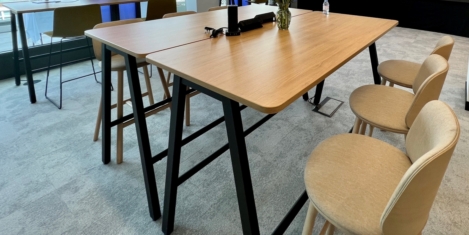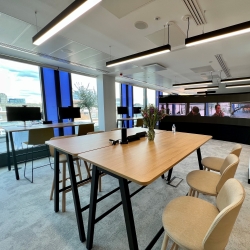September 12, 2023
Shanghai Design Week announces details of London event
 Shanghai Design Week has announced details of its ‘Design to Wonderland’ event, being staged in London for the first time later this month. The event organisers hope that the inaugural event will serve as a global platform to spotlight Chinese innovation across a number of creative sectors, including architecture, art, fashion, and beauty. Taking place from 16th – 29th September, China Exchange Centre will host the event, a collaboration between Shanghai Design Week and the London Design Festival. As well as being a celebration of Chinese creativity, D2W is planned to serve as ‘a bridge’ between the design industries of China and the UK. London Design Festival is also hosting an event in collaboration with Insight, details of which can be found here. (more…)
Shanghai Design Week has announced details of its ‘Design to Wonderland’ event, being staged in London for the first time later this month. The event organisers hope that the inaugural event will serve as a global platform to spotlight Chinese innovation across a number of creative sectors, including architecture, art, fashion, and beauty. Taking place from 16th – 29th September, China Exchange Centre will host the event, a collaboration between Shanghai Design Week and the London Design Festival. As well as being a celebration of Chinese creativity, D2W is planned to serve as ‘a bridge’ between the design industries of China and the UK. London Design Festival is also hosting an event in collaboration with Insight, details of which can be found here. (more…)

















 Zoom has opened a new London ‘Engagement Hub’ which the firm claims will spearhead the shift from traditional office spaces to ‘experiential working hubs’. With the demand for hybrid working and remote capabilities giving rise to unconventional ways of operating, Zoom says it has designed its new office to support the changing nature of the employee experience, marking a new era of modern work.
Zoom has opened a new London ‘Engagement Hub’ which the firm claims will spearhead the shift from traditional office spaces to ‘experiential working hubs’. With the demand for hybrid working and remote capabilities giving rise to unconventional ways of operating, Zoom says it has designed its new office to support the changing nature of the employee experience, marking a new era of modern work. 
 Workforces need to evolve now more than ever.
Workforces need to evolve now more than ever. 













September 5, 2023
Working from home won’t last forever… will it?
by Zain Ali • Comment, Flexible working, Technology